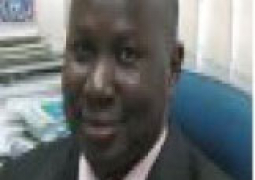Voice From Conakry. Kwame Nkrumah,
PANAF Books, 73 pages
This is a compendium of the numerous speeches broadcast over Radio Guinea during the early days of Nkrumah’s exile in Conakry. These broadcasts to the people of Ghana were made between March and September 1966 purposely to expose the true nature of the coup which ousted Nkrumah on 24 February 1966, and secondly, to encourage resistance against the coup by Ghanaians. While Nkrumah succeeded in achieving both: these speeches helped to discredit the Kotoka led coup before the eyes of the international community, and also were able to incite a counter coup in 1967 led by a Lt Arthur, which failed.
When the broadcasts were made, the people of Ghana were being subjected to oppressive rule and to campaigns of vile propaganda and lies designed the tarnish the image of Nkruamh and his socialist government. These speeches were therefore fitting ripostes to the propaganda of the Military council which deposed him.
Significantly, the first speech was made on 6th March, the 9th anniversary of Ghana’s independence and only 12 days after the coup. In it, Nkrumah, who ruled Ghana from 1951 to 1966, reminded his listeners that it was on ‘this day that the combined forces of the Ghana people secured independence from British imperialism’ p.1. He continued to highlight the achievements of his regime such as the strides he made in supporting other African countries to become independent, and his strong pan Africanist credentials. ‘They cannot destroy what we have taken years to build. For what we have achieved is built on rock foundations and is indestructible. Forward ever, backwards never. There is victory for us’, p.3. This tone of defiance continues to ring throughout the speeches.
It seems that Nkrumah was yet confident that the coup will finally be crushed and that he would soon be back home. But as the days and weeks and months dragged on, the military junta dug in firmly and Nkrumah’s hopeful tone began to be coloured with strains of despair and helplessness. ‘The so called National Liberation Council (the military junta) is selling the country to the neo-colonialist…. Unless these stooges are destroyed quickly, Ghana will soon return to the colonial past’, p.36. Here Nkrumah was being prescient: the coup paved the way for the West to return to their old ways of doing things in Ghana and Africa, because their main barrier, Nkrumah, was out of The way.
Some of the speeches touched on Nkrumah’s daily routine as an exile in Conakry, then under the firm grip of Sekou Toure. On 12 June 1966 he stated: ‘A week ao this Sunday, it was not possible for me to speak to you. I was then on an inspection tour of Guinea with Brother president Seku Toure. I visited several places and I was fascinated to see many of Guinea’s development projects and plans, agricultural and industrial..’, p.63, and some of these places gave him some nostalgia on what he was doing back home before his ouster.
As the months dragged on, the voice from Conakry became less regular such that by Christmas 1966, the speeches had ceased and Nkrumah was resigned to a life of exile. This is an inspiring book in that it gives an insight of the achievements of Nkrumah as leader of Ghana, his dealings with the West who disliked him for his strong pan-African stance and his fierce patriotism.


